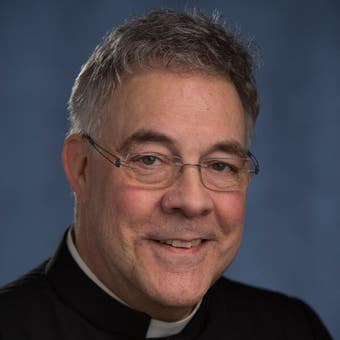'Sopranos' actor Tony Sirico’s life honored by his brother Father Robert Sirico
Father Robert Sirico speaks to Neil Cavuto about his brother’s funeral, life and career, and today's political polarization on ‘Your World With Neil Cavuto.’
Editor's note: What follows is an edited homily given at the Requiem Mass for Tony Sirico, who played "Paulie Walnuts" in HBO's "The Sopranos," at the Basilica of Regina Pacis in Brooklyn, New York on July 13, 2022. It's based upon Saint Luke's account (23:39-43) of Jesus's crucifixion.
There is no need for me to rehearse the details of my brother's life—the great change that took place in its trajectory from when he was young that brought him to the success he came to enjoy as he matured.
Besides, it is not the role of a priest in a funeral homily to eulogize the deceased. My role, which I take as seriously as Tony took his acting, is to communicate to you the love of God that comes to us in the sacrifice of Jesus Christ in the face of death. Death is not the final word in the Christian vocabulary—life is—eternal life, into which my brother has now passed.
Nor is it my role to canonize my brother. For that, I would have to refer you to a higher authority.
What I can do is point out to you some dimensions of this man’s complex life of which you may not have been aware and perhaps make some connections that could be overlooked.
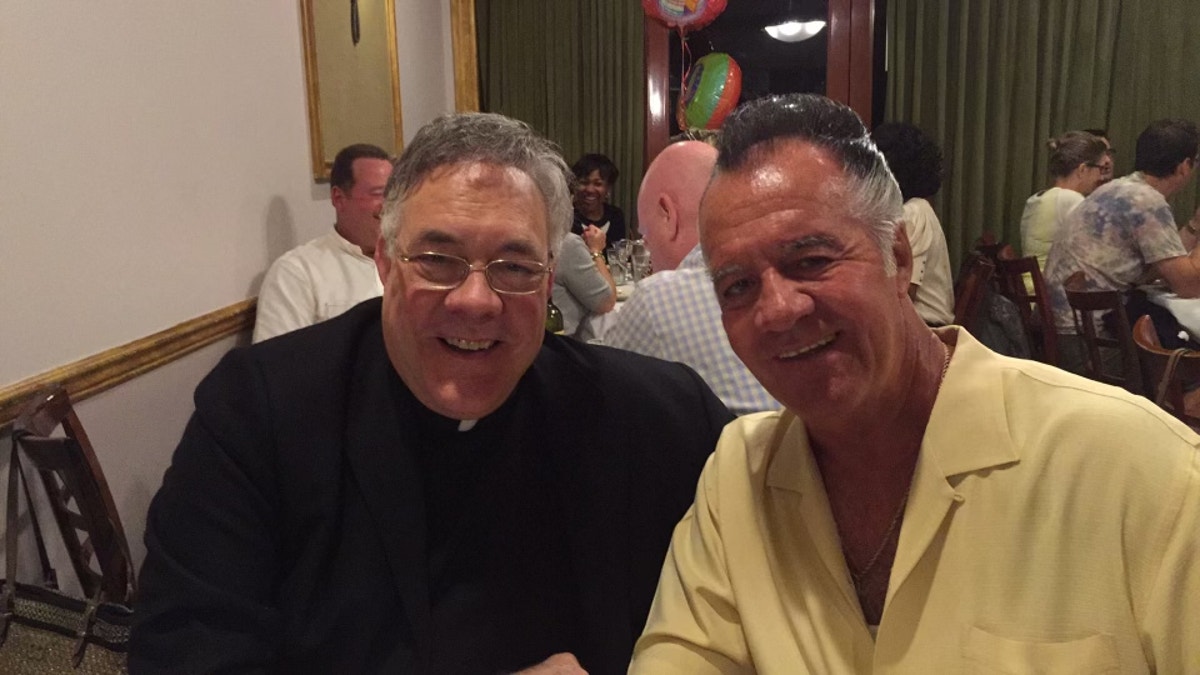
Rev. Robert Sirico and Tony Sirico at dinner circa 2015 (Rev. Robert Sirico)
The most obvious thing about my brother was his crusty, tough exterior. I have likened him to a loaf of good, Italian bread.
There were a lot of reasons for that intense bravado, but it is sufficient to say that it was there for protection.
As many professional actors know, people often confuse the actor with the act. But when you looked beneath Tony’s "defensive armor"—as his friend and colleague Michael Imperioli called it at the wake—you began to see a softer, gentler, interior.
Given some decisions he made—especially earlier in his life, and certainly in the roles he came to play in his professional career—many will be surprised to hear that my brother had a moral core. Let me illustrate this by a story.
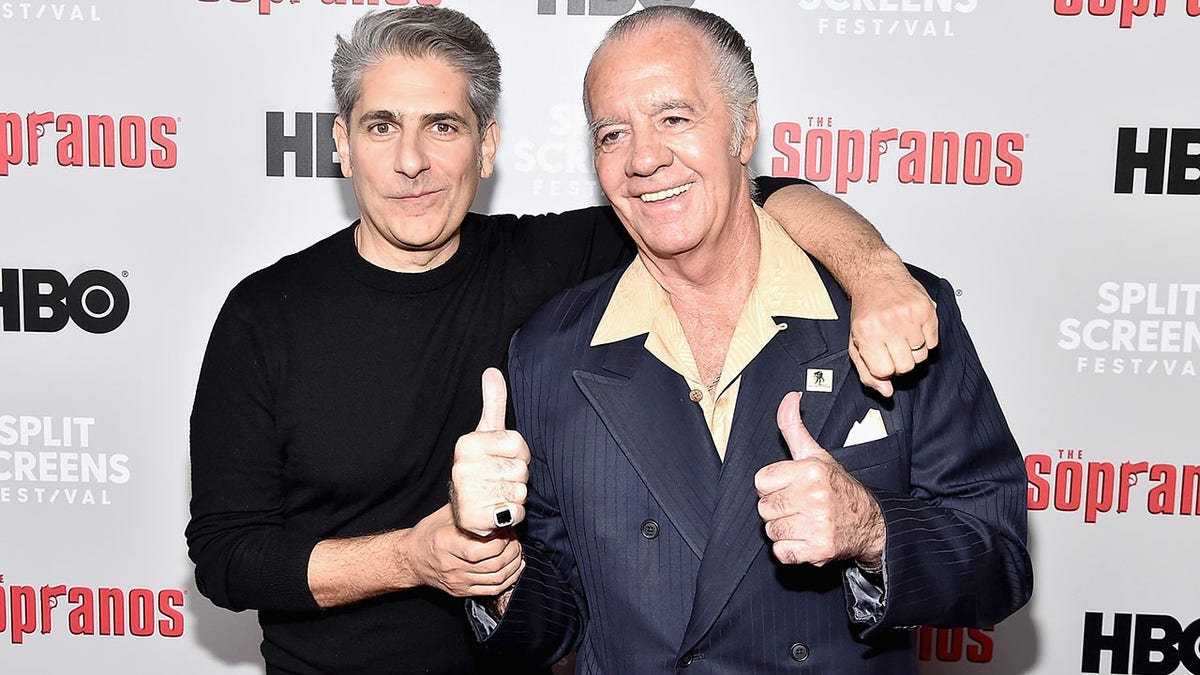
NEW YORK, NEW YORK - JANUARY 09: Michael Imperioli and Tony Sirico attend the "The Sopranos" 20th Anniversary Panel Discussion at SVA Theater on January 09, 2019 in New York City. (Photo by Theo Wargo/Getty Images) (Photo by Theo Wargo/Getty Images)
I celebrated my first Mass as a priest in this church in 1989 because my parents had been married here, and my father had his funeral Mass here. My mother would be buried from this church, as well.
As you may know, the first Mass of a priest—especially an Italian-American priest—is celebrated like a marriage with friends and family invited to the Mass, and to a festive gathering following.
At that reception, I was speaking to Tony when a relative crossed the dance floor to speak to him. "Junior"—as the family called him—"today was your brother’s first Mass," she said with a tone of an accusation.
"Yeah. What about it?"
"You didn’t receive Communion."
"Aunt Irene, I didn’t go to confession."
I turned to him and said: "Junior, you’re the last bad Catholic in America. Everyone else thinks they’re entitled."
At that moment, I saw my brother’s recognition of his incompleteness and the necessity for preparation and confession before encountering a Holy God. This was my brother’s redemption.
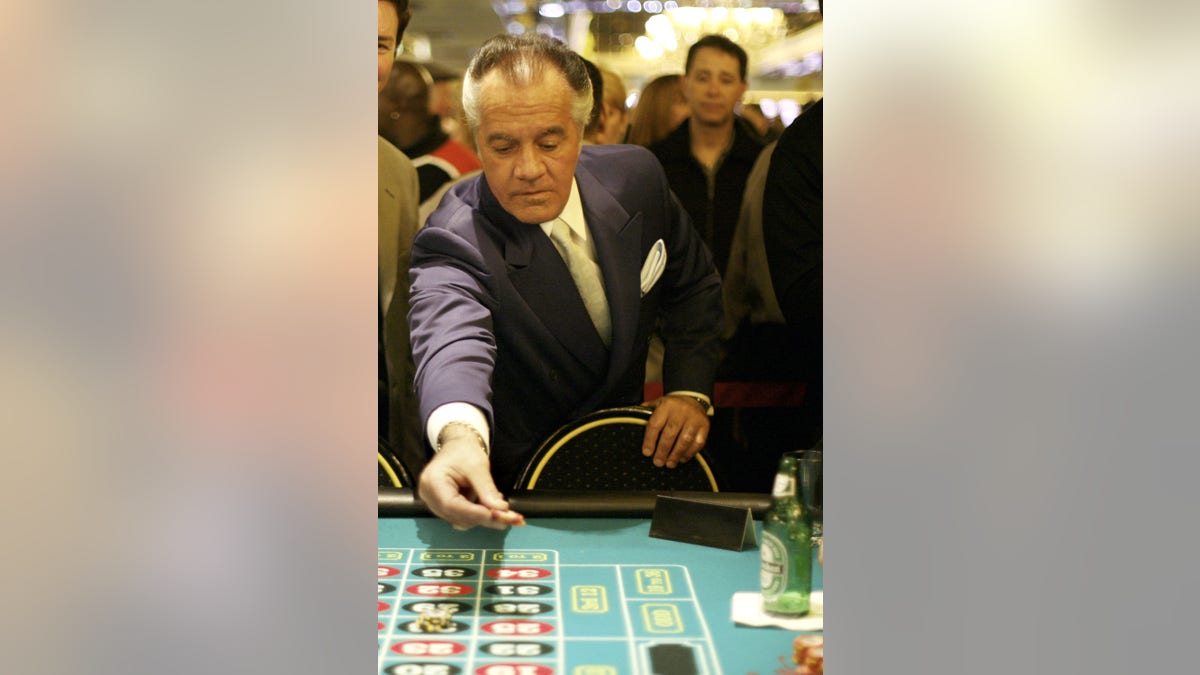
Tony Sirico during The Sopranos Cast Press Conference and Photocall at Atlantic City Hilton - March 25, 2006 at Atlantic City Hilton in Atlantic City, New Jersey, United States. (Photo by Tom Briglia/FilmMagic) (Photo by Tom Briglia/FilmMagic)
I know that many today think the admission of sin or guilt or shame for wrong-doing somehow diminishes human dignity. I think, rather, that it places a firm foundation under our dignity because it reinforces our integrity.
The gospel describes the death of our Lord on the cross as being crucified between two criminals. Jesus was "counted among the wicked." Jesus was often among sinners.
The place, Golgotha, was an abandoned quarry. And in a way, those two malefactors on either side of Jesus, represent all of us—the whole of humanity—in our capacity to either deny our failings and rage against those who make them apparent to us; or to reach out for forgiveness.
Surrounded by scorn on that hill, among the last words that Christ spoke were words of forgiveness: "Father, forgive them."
This was not a cheap forgiveness he was offering. After all, it cost our Lord his life.
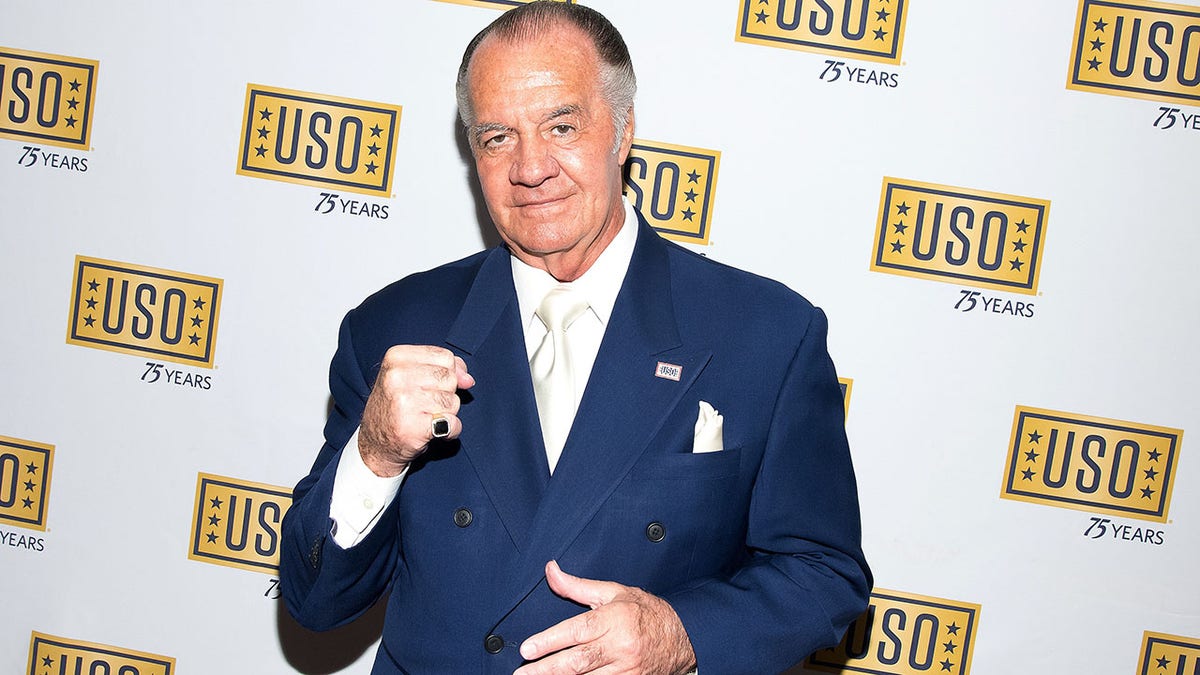
Tony Sirico known as Paul 'Paulie Walnuts' Gualtieri in 'The Sopranos' died on July 8 at the age of 79. (Photo by Mike Pont/WireImage)
CLICK HERE TO GET THE OPINION NEWSLETTER
A few weeks ago, I saw my brother for the last time in Florida where he lived close to his faithful daughter, Joanne, who tended to his every need in his final days. I sensed that the end was coming, so as we sat in a private place, I pulled a confessional stole out of my pocket, I looked into his eyes, and I said, "How about that confession?"
My brother agreed, and I did one of the most significant things that a priest can ever do for another human being. I absolved him of his sins—all of his sins.
CLICK HERE TO GET THE FOX NEWS APP
That "good thief" about whom I spoke is said to have "stolen heaven" in the last moments of his life. He did not deny his guilt—he admitted it. He did not obfuscate nor equivocate. He simply said: "Jesus, remember me when you come into your kingdom."
Jesus replied: "Truly I tell you, today you will be with me in paradise."
My friends, if Paulie Walnuts could steal heaven, so can you and I.








































